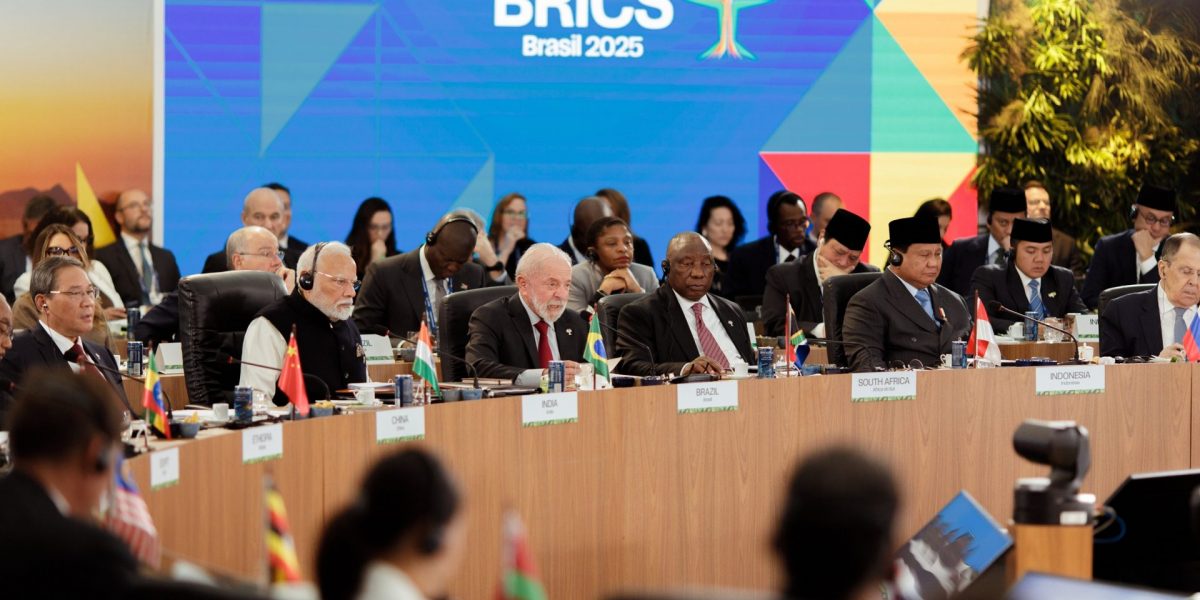Policymakers and academics face a persistent puzzle when analysing the BRICS: determining what exactly this grouping wants to achieve. The uncertainty stems from contradictory signals – BRICS countries simultaneously call for reforming global institutions while building their own parallel alternatives, champion multilateralism while actively coordinating positions that challenge Western (especially US) leadership of multilateralism, and advocate for inclusive governance, while often excluding traditional powers from their arrangements.
These contradictions have intensified following the expansion of the BRICS from its original five members – Brazil, Russia, India, China, and (later) South Africa, hence the acronym – to 10 countries by early 2025, encompassing nearly half of the global GDP and population. The enlarged grouping now includes Egypt, Ethiopia, Iran, the UAE and Indonesia, potentially representing an attempt to recalibrate global governance rather than merely expanding a club.
The timing amplifies the stakes dramatically. Just as BRICS foreign ministers reaffirmed their commitment to ‘strengthening multilateralism’ in April 2025, the US withdrew from key international organisations through a series of executive orders. This creates an unprecedented paradox: while America retreats from institutions it created, a group of rising and emerging powers, through the BRICS, embrace multilateral governance on their own terms.
The recent expansion brings this fundamental tension into sharp focus, raising critical questions about the enlarged grouping’s agency and influence in global affairs. Does the expanded BRICS represent a reactive formation, essentially shaped by existing power structures and seeking accommodation within established frameworks? Or has BRICS set its sights on becoming a proactive force capable of fundamentally reshaping the global order according to its own vision? To borrow a culinary metaphor, the distinction is between seeking a seat at the existing table of global governance versus opening an entirely different restaurant with its own menu and rules. This choice carries profound implications; a BRICS that is primarily shaped by the existing order would function as a reformist pressure group, working to democratise current institutions while accepting their basic legitimacy and perhaps take up a greater leadership role as the established powers recede. However, a BRICS that actively shapes the global order represents a more transformative proposition – one that challenges the fundamental premises of Western-led governance and offers genuinely alternative pathways for international cooperation. The expanded membership highlights this dilemma, as the grouping must now demonstrate whether its enhanced demographic and economic weight translates into genuine agenda-setting power or merely provides greater voice within pre-existing constraints.
A special issue of the South African Journal of International Affairs (SAJIA) addresses these critical questions by examining whether BRICS expansion represents a genuine effort to reshape the global order or is primarily an adaptive response to changing power dynamics. The contributors analyse both the proactive institutional innovations that suggest transformative ambitions and the reactive adaptations that indicate pragmatic accommodation to existing constraints.
This article appears in the soon-to-be-released special issue.








